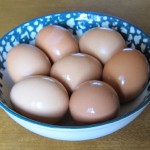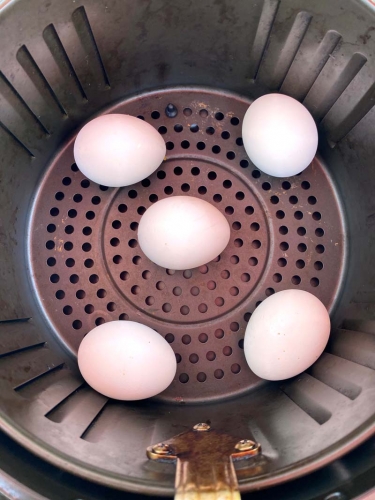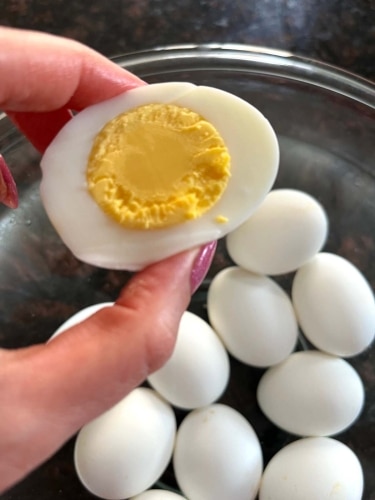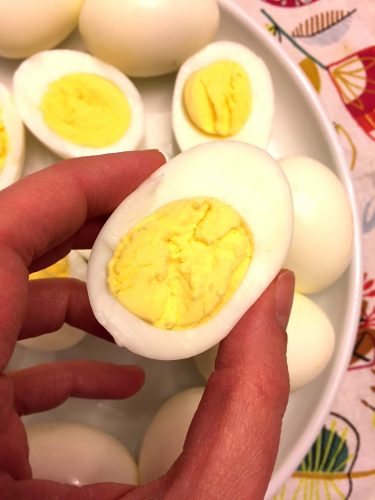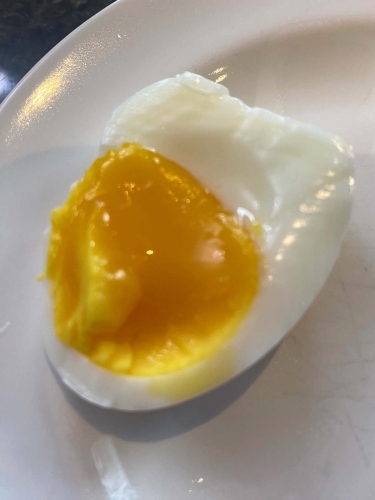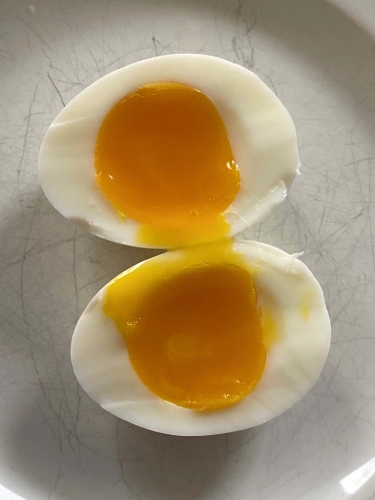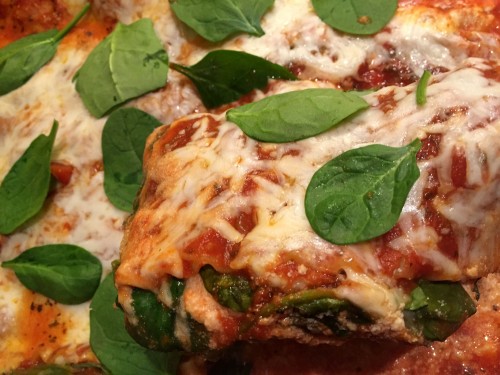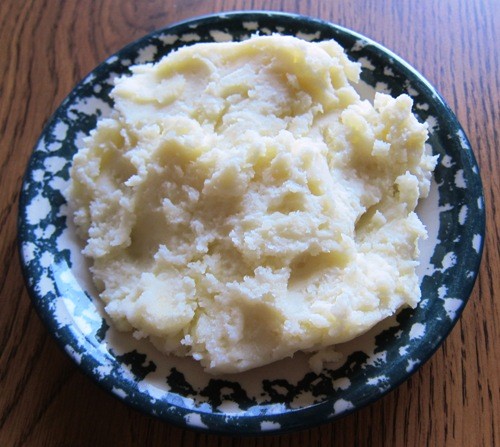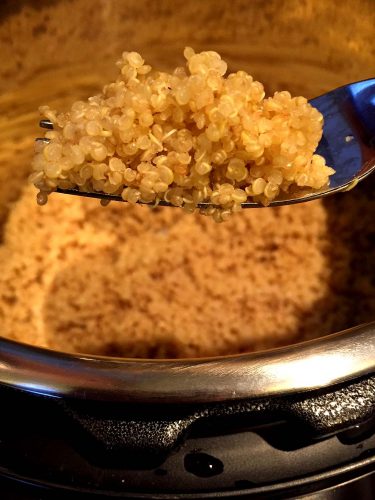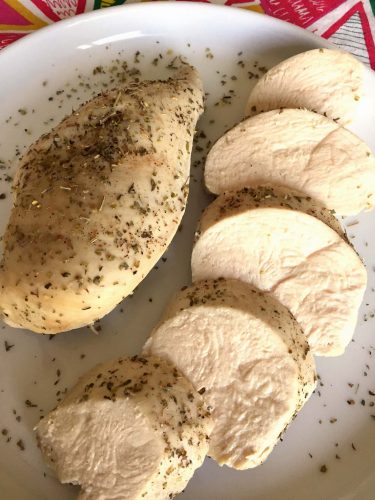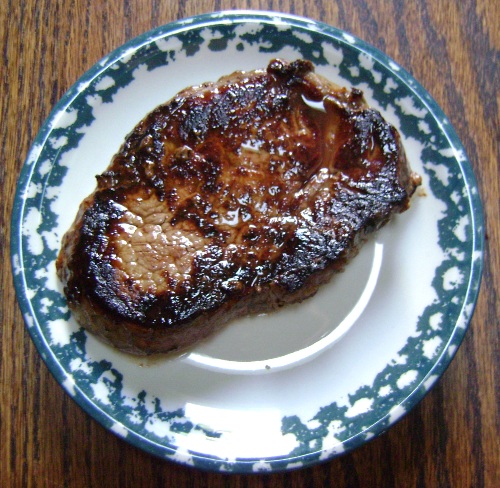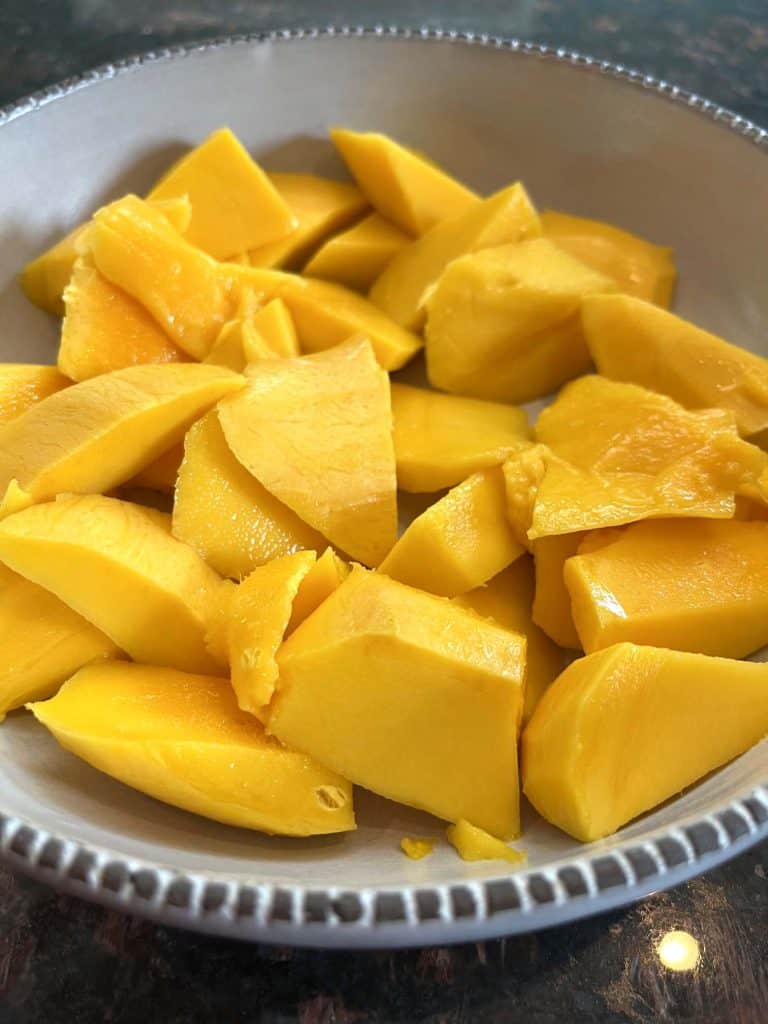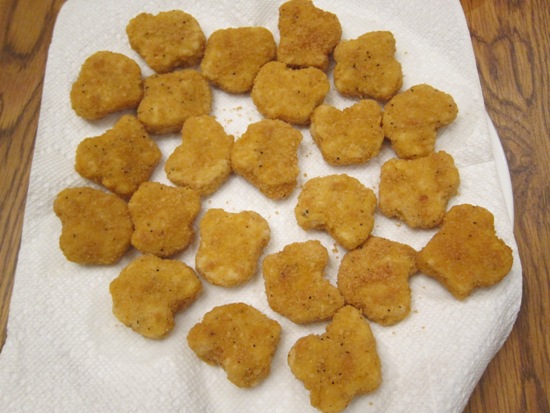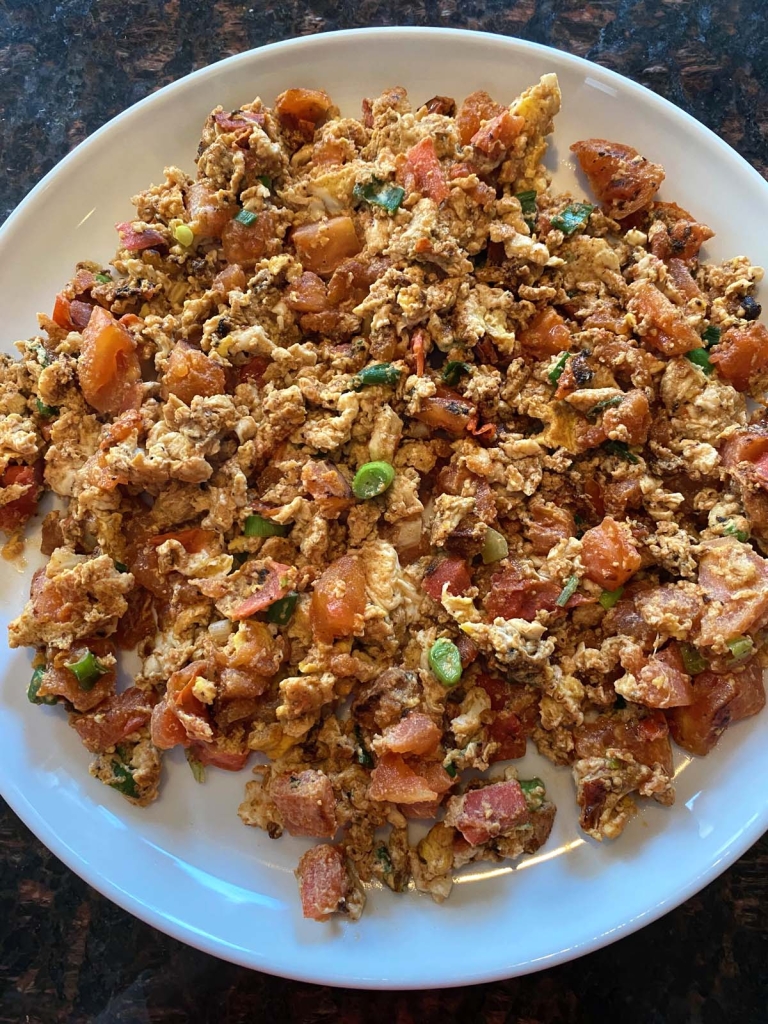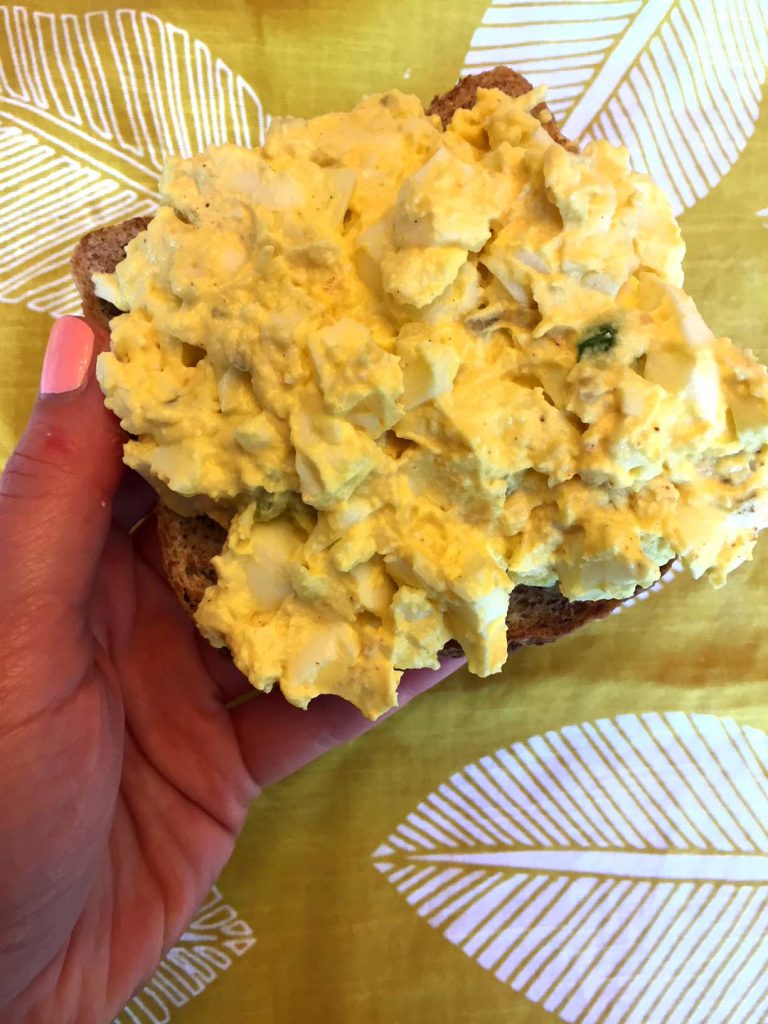How To Boil An Egg – Perfect Hard Boiled Eggs Recipe
This post may contain affiliate links (disclosure).
Boiling eggs may seem simple, but achieving perfectly cooked hard-boiled eggs requires just the right technique. With this easy recipe, you’ll avoid cracked shells and rubbery eggs, getting the perfect texture every time. Whether you’re preparing a quick snack or making a dish like egg salad, these hard-boiled eggs will come out just right!
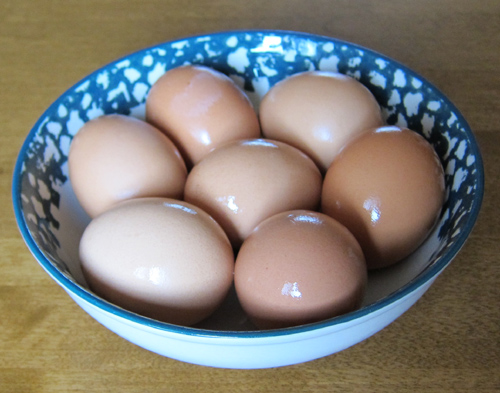
Want to save this recipe?
Why You’ll Love How To Boil An Egg – Perfect Hard Boiled Eggs Recipe
- Easy and straightforward: This recipe is simple enough for beginners, yet delivers perfect results every time. You only need two ingredients and a few easy steps to get it just right.
- Foolproof technique: By starting the eggs in cold water and simmering for just 10 minutes, you’ll avoid common problems like cracking shells or overcooking. This method guarantees eggs with a great texture, perfect for any dish.
- Versatile ingredient: Hard-boiled eggs are incredibly versatile. Whether you’re making egg salad, adding them to your favorite salad, or enjoying them as a protein-packed snack, they fit into many meals.
- Easier to peel: Cooling the eggs in cold water after boiling makes them much easier to peel. You won’t have to struggle with broken egg whites or stuck shells.
- Healthy and nutritious: Eggs are a fantastic source of protein, vitamins, and minerals, making this recipe a great option for a nutritious snack or meal addition.
Kitchen Tools You Need To Make How To Boil An Egg – Perfect Hard Boiled Eggs Recipe
- Pot – A medium or large pot, depending on how many eggs you’re boiling. The eggs should be fully submerged in water.
- Bowl – A bowl for cold water, which helps cool the eggs quickly for easier peeling.
- Measuring cups – To measure enough water to cover the eggs completely.
Boiling eggs is a basic cooking task, but many people still don’t know how to boil an egg. There are several things that can go wrong when you are making a hard boiled egg – the shell can crack or the egg can be undercooked (too soft or even liquid) or overcooked (too tough and rubbery). Don’t worry – making perfect hard boiled eggs is easy when you follow my precise cooking instructions.
How To Boil An Egg
Ingredients For Perfect Hard Boiled Eggs:
- Eggs: Use fresh eggs for the best results. You can boil as many as you need!
- Water: Enough water to cover the eggs in the pot. Cold water is important to start the cooking process evenly.
Instructions How To Boil An Egg:
- Add about 2 inches of cold water to the pot.
- Carefully put the eggs in the pot with water. Lower them in a pot gently so the eggs don’t crack.
- If the eggs aren’t completely covered with water, add more water until the eggs are completely submerged.
- Put the pot on high heat and bring water to a boil.
- Reduce heat to simmer and simmer the eggs for 10 minutes.
- Drain the hard-boiled eggs and put them in a pot of cold water (cooling them in cold water will make the eggs easier to peel).
That’s all there is to boiling eggs! All you need to make a perfect hard-boiled egg is to put it in a pot of cold water, bring to boil and simmer for 10 minutes, then dump into cold water to cool.
Serving Suggestions
- Enjoy your hard-boiled eggs as a healthy, protein-packed snack with a sprinkle of salt and pepper.
- Add them to salads like Caesar salad, potato salad, or a classic chef’s salad for extra texture and nutrition.
- Use them as a topping for toast, alongside avocado or hummus, for a filling breakfast or brunch option.
- Slice them up and include them in chicken salad sandwiches or chicken ceasar salad wraps for added protein.
- Incorporate them into dishes like deviled eggs or egg salad for a tasty and satisfying meal.
Here are some common mistakes that many people make when they boil an egg:
Hard Boiled Eggs Mistake #1 – Cooking Eggs For Too Long
I’ve heard of people boiling eggs for as long as 1 hour! I guess people are afraid that the egg won’t be cooked well enough – maybe they are driven by the fear or salmonella :) Be assured that when you boil an egg for 10 minutes, it will certainly be well cooked and completely hard-boiled. Cooking the eggs for too long will result in tough egg texture.
Hard Boiled Eggs Mistake #2 – Putting The Eggs In Boiling Water
Often people attempt to boil eggs the same way as they cook pasta – boil the water first, then put the eggs in. The problem with this approach is that when the eggs are exposed to a sudden hot temperature, the shells often crack. The correct way to boil an egg is to put them in cold water, then bring to a boil – this way the increase in water temperature is gradual and the eggs won’t crack.
Hard Boiled Eggs Mistake #3 – Not Cooling The Eggs Before Peeling
If you ever tried peeling a hot egg, you know what a mess it will be. Hot eggs simply won’t peel well. You need to cool the eggs before peeling them by putting them in a bowl with cold water. To peel cold eggs, crack the shell on both sides by whacking the egg on the counter, then peel the shell under cold running water.
Tips For Success
- Start with cold water: Always place your eggs in cold water before bringing it to a boil. This gradual temperature increase helps prevent the shells from cracking due to sudden heat changes. It’s one of the most important steps to ensure your eggs cook evenly and don’t break.
- Don’t overcook the eggs: Boiling eggs for too long can result in a rubbery texture, and sometimes you’ll notice a greenish-gray ring around the yolk, which indicates overcooking. Stick to the 10-minute simmering time for perfectly cooked hard-boiled eggs with bright yellow yolks.
- Use a gentle simmer: Once the water reaches a boil, reduce the heat to a gentle simmer. A rolling boil may cause the eggs to jostle too much, which can crack the shells.
- Cool eggs in cold water: After boiling, transfer the eggs into cold water immediately. This stops the cooking process and makes peeling easier by separating the membrane from the shell. For best results, let them sit in cold water for a few minutes.
- Peel under running water: When peeling the eggs, do it under cold running water. The water helps remove any small bits of shell and makes the process much easier, especially if the shell is stubborn.
- Use eggs that are a few days old: Slightly older eggs tend to peel more easily than very fresh ones. If you’re having trouble peeling fresh eggs, try letting them sit in the fridge for a few days before boiling.
Variations And Substitutions
- Soft-Boiled Eggs: If you prefer a softer yolk, you can adjust the cooking time. For a soft-boiled egg with a slightly runny yolk, simmer the eggs for about 6 minutes instead of 10. Follow the same process of cooling them in cold water after cooking to make peeling easier.
- Medium-Boiled Eggs: For a yolk that’s more set but still creamy, try simmering the eggs for about 8 minutes. This is a great option if you want a balance between soft and hard-boiled textures.
- Jammy Eggs: These are ideal for ramen or salads. For jammy eggs with a custard-like center, cook the eggs for 7 minutes. Immediately place them in cold water to stop the cooking process.
- Quail Eggs: Quail eggs are smaller and more delicate, so they require less cooking time. Simmer quail eggs for about 4-5 minutes for hard-boiled quail eggs. They make a great topping for appetizers or salads.
- Vinegar and Salt Additions: Some people add a splash of vinegar or a pinch of salt to the water when boiling eggs. These additions are believed to help with easier peeling or prevent the egg whites from leaking if a shell cracks. While it’s not necessary, you can try this variation to see if it works for you.
- Flavored Hard-Boiled Eggs: For a fun twist, after boiling, you can marinate your eggs in soy sauce, tea, or herbs for extra flavor. This is a popular technique in Asian cuisine, such as making Chinese tea eggs or soy sauce eggs.
- Dietary Restrictions: For those on a low-sodium diet, you can enjoy the eggs plain or with a sprinkle of herbs instead of salt. Hard-boiled eggs are naturally gluten-free, dairy-free, and keto-friendly, making them a great option for a wide range of diets.
Storage and Reheating
- Storage: Hard-boiled eggs can be stored in the refrigerator for up to 7 days. To keep them fresh, it’s best to store them unpeeled in an airtight container. This helps prevent them from absorbing odors from other foods in the fridge. If you’ve already peeled the eggs, wrap them in damp paper towels and place them in an airtight container to keep them from drying out.
- Reheating: While hard-boiled eggs are often enjoyed cold or at room temperature, you can reheat them if you prefer. To reheat a hard-boiled egg, place it in a bowl of hot (but not boiling) water for about 5 minutes. This warms the egg gently without overcooking it. Avoid using the microwave to reheat hard-boiled eggs, as they can explode due to the trapped steam inside the egg.
- Freezing: It’s not recommended to freeze hard-boiled eggs, as the egg whites become rubbery and unpleasant in texture after freezing. However, you can freeze the yolks if you need to preserve part of the egg for later use.
Frequently Asked Questions
How long should I boil eggs to get a hard-boiled texture?
To achieve hard-boiled eggs with fully set yolks, simmer them for 10 minutes after the water reaches a boil. This cooking time ensures the eggs are thoroughly cooked without becoming overdone or rubbery.
Why do my egg shells crack while boiling?
Egg shells often crack when they’re placed directly into boiling water because the temperature shock is too sudden. To prevent this, always start with cold water and let the eggs gradually warm up as the water heats. This avoids sudden expansion of the eggshells, which can cause cracking.
Want to save this recipe?
Why are my hard-boiled eggs difficult to peel?
Eggs that are too fresh can be difficult to peel. Letting your eggs sit in the fridge for a few days before boiling can make them easier to peel. Additionally, cooling the eggs in cold water after boiling helps separate the membrane from the shell, which also makes peeling easier.
Can I boil eggs in advance and store them for later use?
Yes, hard-boiled eggs can be made ahead of time and stored in the fridge for up to 7 days. For the best results, store the eggs with their shells intact in an airtight container. This keeps them fresh longer and prevents them from absorbing odors from the fridge.
What’s the best way to peel hard-boiled eggs?
After cooling the eggs in cold water, crack the shells on both ends by tapping them gently on the counter. Roll the egg on the counter to loosen the shell, and peel it under cold running water. The water helps flush away any small shell fragments and makes peeling easier.
Can I use hard-boiled eggs in meal prep?
Absolutely! Hard-boiled eggs are a great addition to meal prep since they last up to a week in the fridge. They’re versatile and can be used in salads, sandwiches, or as a quick snack on their own. Just store them in an airtight container and enjoy them throughout the week.
What happens if I overcook hard-boiled eggs?
Overcooking hard-boiled eggs can result in a greenish-gray ring around the yolk and a rubbery texture. This happens because the iron in the yolk reacts with the sulfur in the whites. To avoid this, stick to the 10-minute simmering time and cool the eggs immediately in cold water after cooking.
Other Easy Egg Recipes
Crispy Fried Potatoes with Eggs – Quick Breakfast Recipe: Enjoy crispy fried potatoes paired with perfectly cooked eggs for a hearty and easy breakfast.
Scrambled Eggs with Creamy Cottage Cheese: Light and fluffy scrambled eggs mixed with creamy cottage cheese for a protein-packed breakfast.
Healthy Egg White Bites Recipe (Starbucks Inspired): These egg white bites are a healthy and delicious make-ahead breakfast, inspired by Starbucks but easy to make at home.
Oven-Baked Sheet Pan Eggs: Perfect for feeding a crowd, these sheet pan eggs are baked in the oven for a hands-off, effortless breakfast.
Stir-Fried Chinese Tomato and Egg Recipe: A classic Chinese dish featuring tender scrambled eggs stir-fried with juicy tomatoes for a quick and savory meal.
Air Fryer Perfect Poached Eggs: Make perfectly poached eggs with ease in the air fryer, ready in just minutes with minimal effort.
Sautéed Cabbage and Eggs – Easy Low-Carb Meal: This simple sautéed cabbage and eggs recipe is a nutritious, low-carb meal that’s ready in no time.
How To Boil An Egg – Perfect Hard Boiled Eggs Recipe
Want to save this recipe?
Ingredients
- Eggs as many as needed
- Water
Recommended Kitchen Tools (click the links below to see the items used to make this recipe)
- Pot
- Measuring Cups for water
Instructions
- Add 2 inches of cold water to a pot.
- Gently lower the eggs into the pot, ensuring they don’t crack.
- If needed, add more water to completely submerge the eggs.
- Set the pot on high heat and bring the water to a boil.
- Once boiling, reduce heat to a simmer and cook for 10 minutes.
- Drain the water and place the eggs into a pot of cold water. This helps make peeling easier.
- Once cooled, the eggs are ready to peel and enjoy!
Notes
- Cooling the eggs before peeling helps to remove the shell more easily.
- Avoid boiling for too long, as this can result in a rubbery texture.
Now you know exactly how to boil an egg perfectly! For yummy recipes using hard boiled eggs, check out my easy chicken salad recipes and Russian potato salad Olivier.

